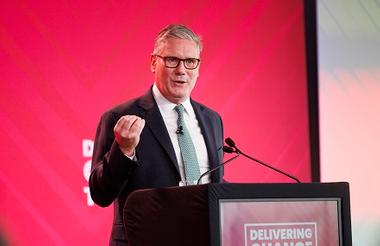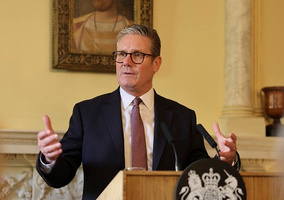The keenly anticipated Civil Society Covenant finally emerged this week, emphasising the sector’s right to criticise the government and pledging to increase collaboration between the two as “equal partners”.
It effectively replaces the Compact, originally produced under Tony Blair’s Labour government before being renewed under the coalition administration in 2010 as part of David Cameron’s Big Society vision.
The England-focused Compact, as opposed to the UK-wide covenant, fizzled out after Cameron’s civil society minister Nick Hurd left in 2014 and his replacement Brooks Newmark insisted charities should “stick to their knitting” and stay out of politics.
Charities will be hoping that the new covenant therefore signals a “fundamental reset”, as promised by Keir Starmer, of the sector’s relationship with the state after a strained decade.
Implementation
On the surface, the covenant’s four key principles – recognition and value, partnership and collaboration, participation and inclusion, transparency and data – do not signal a significant departure from the main aims of the Compact.
Nevertheless, many charity leaders have welcomed the government’s keenness to renew its relationship with the sector but cautioned that actions must now follow to ensure these aims are rolled out.
One of the most encouraging parts of yesterday’s announcements was the plans for public sector bodies across the country to adopt the covenant’s pledges.
The Compact had been backed up by the Commission for the Compact to independently oversee the agreement, as well as NCVO’s sector champion Compact Voice.
No similar mechanisms had been trialled prior to yesterday’s announcement, but the government delivered in this regard by announcing several actions to roll out the covenant nationwide.
These include a cross-sector board called the Joint Civil Society Covenant Council, perhaps similar to the Commission for the Compact, which will be formed to set direction and provide strategic oversight for the agreement’s implementation.
Two “task and finish groups” focusing on commissioning and local level partnerships will be set up, with plans for more in future.
The Department for Culture, Media and Sport will steer a “local covenant partnerships” programme to build capacity and understanding, which will include encouraging more cross-sector secondments and delivering new locally led covenant agreements.
HM Treasury will establish a new civil society forum to enable “structured dialogue and engagement” between its ministers and senior officials and civil society representatives.
Meanwhile, the Cabinet Office has reviewed its model grant and service contract templates to ensure they are consistent with the principles of the covenant and agreed to update any guidance as needed shortly.
The government has also published a list of progress and “warning” signs for implementing the Civil Society Covenant.
One warning sign listed is: “Civil society organisations report self-censorship because they fear negative consequences if they speak out or hold government to account, despite the terms of the covenant.”
Charities will hope that these warning signs do not emerge, or if they do, that they can use the covenant to correct swiftly any attempts to deviate from its principles.
Right to campaign
The sector’s ability to campaign and criticise the government, if necessary, on behalf of their beneficiaries without fear of reprisal has been a growing area of concern in recent years.
Several pieces of legislation have chipped away at the sector’s confidence in this area, including the Lobbying Act of 2014 and the more recent Elections Act 2022 and Public Order Act 2023.
Meanwhile, the Charity Commission has repeatedly emphasised the sector’s right to campaign in a non-party-political way but has drawn criticism for its insistence that organisations do so “with kindness”.
It has also warned charities that have overstepped the mark, describing a social media post from the RSPB in 2023 that accused government ministers of being liars as a “serious mistake”.
Enter this week’s covenant, which has been welcomed by sector bodies for its several mentions of respecting charities’ right to campaign and criticise government policies without being treated “any less favourably by excluding them from policy discussions or funding opportunities”.
As the covenant is adopted across all government departments, local authorities and public bodies, it could be a useful tool for charities that feel they are being silenced.
However, culture secretary Lisa Nandy has confirmed that the government has no plans to go further by changing any recently introduced laws that may have had a chilling effect on charities’ campaigning.
Legislation including the Lobbying Act 2014, Elections Act 2022, and the Public Order Act 2023 led CIVICUS Monitor to downgrade its assessment of the UK’s civic freedoms to “obstructed” and warn that civil society action had been delegitimised.
Despite the Labour government’s professed focus on “rebuilding the civic space”, it does not plan to repeal or amend the laws introduced by its Conservative predecessor.
The government has drawn further concerns from some in the sector by planning to introduce further limits on protesting through its crime and policing bill, and its recent decision to proscribe Palestine Action as a terrorist organisation.
Actions in the coming years from central government, its arms-length regulators and public bodies, as well as local councils, will show whether the covenant’s pledges on partnership working and mutual respect come to fruition or stall, as is feared, at warm words.
Related articles












